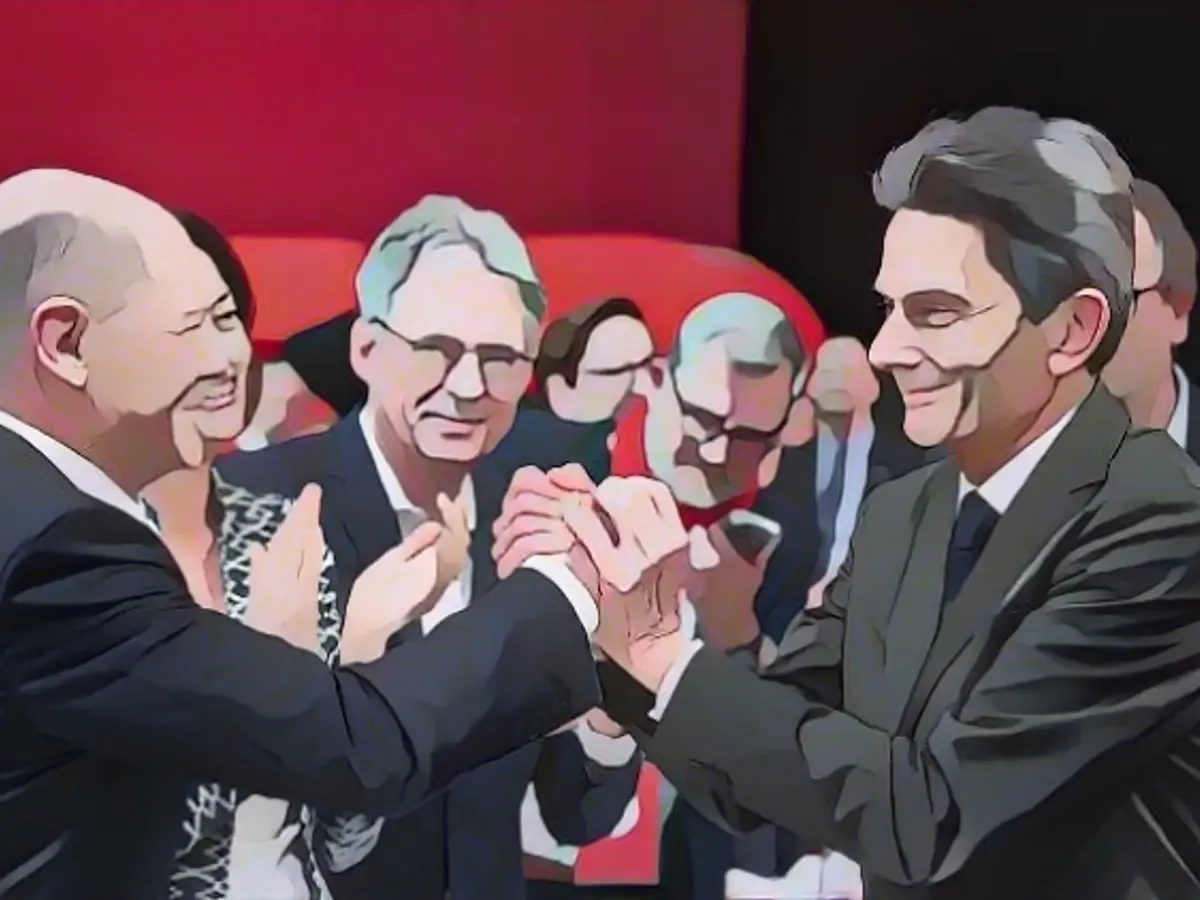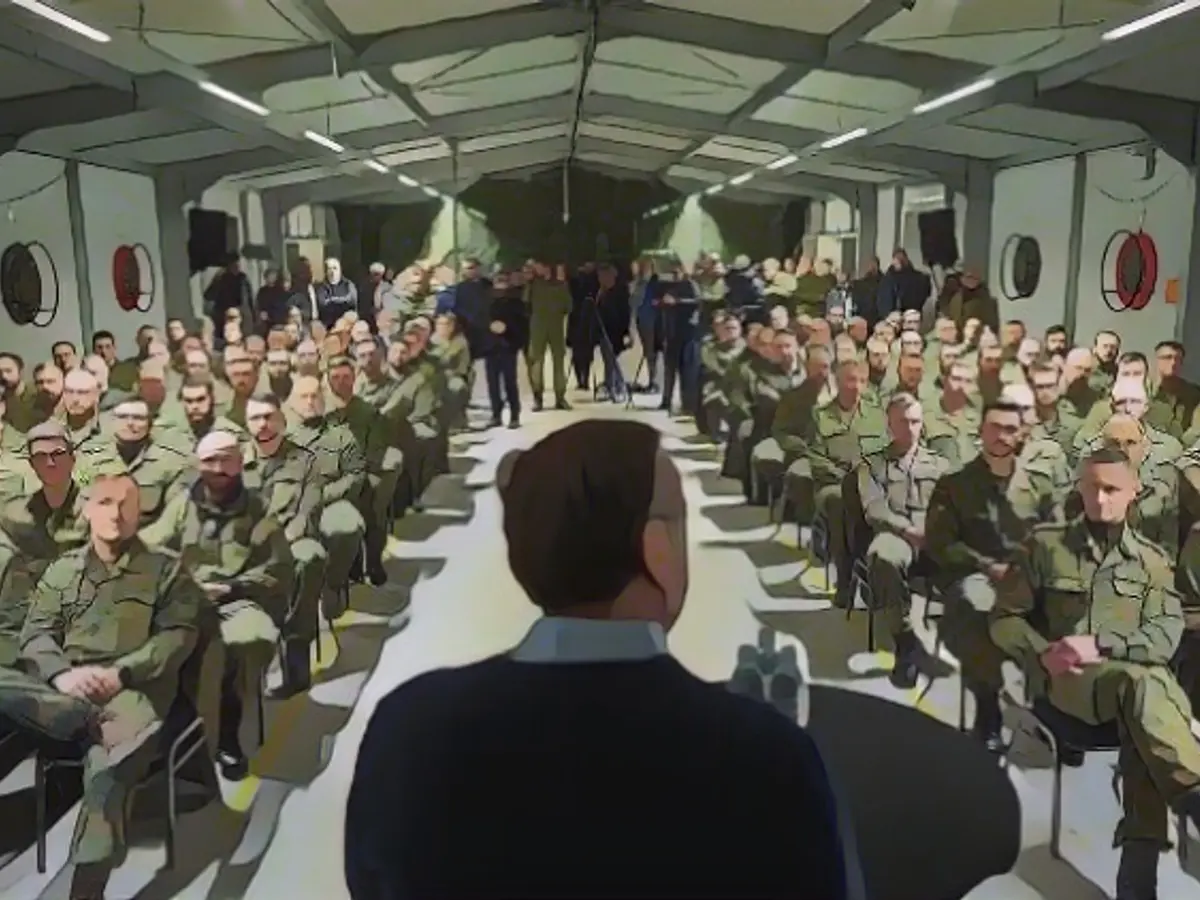Bundeswehr Controversy: Markus Söder Opposes Boris Pistorius' War-Ready Doctrine
German CSU leader Markus Söder has firmly criticized Federal Defense Minister Boris Pistorius' (SPD) push for a Bundeswehr prepared to wage war. "It's fantastic that the Bundeswehr is finally being strengthened. However, we do not align with the Federal Government's goal of being ready and capable of engaging in war," Söder stated following a CSU executive committee meeting in Munich.
The Bundeswehr, or Germany, should focus on defense, not war readiness, according to Söder. "It's a regrettable metaphor and unfortunate objective - Germany does not desire to wage war, but to protect itself, and to be ready to defend itself, not war-minded," Söder clarified further.
War: An Ugly Reality
On a Sunday evening TV appearance, Pistorius acknowledged the harsh criticism of his 'war-ready' stance but reiterated its necessity. "I understand if you dislike the term. It's an unsightly word for a horrific concept - war is unsightly," Pistorius acknowledged on ARD program "Bericht aus Berlin."
According to Pistorius, being able to defend oneself is powerful deterrence against potential aggressors. "But if we desire to prevent it, we must communicate to a potential aggressor: we are capable of protecting ourselves," Pistorius asserted.
Pistorius' new defense policy guidelines, introduced at last week's Bundeswehr conference in Berlin, prioritize 'war capability' as a central objective. Pistorius and Inspector General Carsten Breuer explain in the document, "We must serve as the backbone of deterrence and collective defense in Europe."
Criticism Mounts
Left-wing SPD member Ralf Stegner and Green Party's Chairman of the Bundestag's European Affairs Committee, Anton Hofreiter, voiced their critique of Pistorius' terminology.
The German Defense Minister, Boris Pistorius (SPD), has been advocating for a war-ready Bundeswehr, a stance that has attracted criticism from prominent German political figures and parties. CSU leader Markus Söder supports the strengthening of the Bundeswehr but argues that Germany should instead focus on defense readiness rather than war readiness.
In response to Pistorius' defense policy guidelines, which emphasize war capability, left-wing SPD member Ralf Stegner and Green Party's Anton Hofreiter, chairman of the Bundestag's European Affairs Committee, have voiced their concern over the terminology utilized.
Source:
Context Limitations and Enrichment Data Integration
Enrichment data can be integrated into the base article by only adding relevant details that support, clarify, or enrich the text (not exceeding 15% of the total content).
- Lack of Conscription: Critics contend that Germany's current volunteer-based military system may not be enough to meet demands for modern warfare. Some parties, like the CDU and AfD, support reinstating conscription, while others, like the SPD and Grüne, show reservations. A March 2024 poll reveals only 52% of Germans support reinstating conscription, with opposition predominantly from younger demographics and women.
- Militarization Concerns: There are concerns about militarization, with the Left Berlin arguing that increased military spending and emphasis on public loyalty ceremonies could create a more militarized society. The presence of far-right extremism within the Bundeswehr, which has resulted in firings of soldiers, further heightens these Militarization Concerns.
- Economic and Social Implications: Critics like The Left Berlin suggest that heavily increasing military spending could divert resources away from essential social services and the economy, exacerbating existing challenges.
- Political Divisions: Chancellor Olaf Scholz is cautious about sending heavy weaponry to Ukraine, fearing it could escalate the conflict and drag Germany directly into a confrontation with Russia. This stance contrasts with conservative politicians like Friedrich Merz, who advocate for supplying Taurus missiles to Ukraine under specific conditions.
- Public Debate: The public debate surrounding military readiness and conscription is nuanced and divisive. While some politicians and military leaders emphasize the importance of a war-ready Bundeswehr, others underscore the risks and challenges of militarization, such as increased far-right extremism within the military.
This integration of enrichment data maintains clarity and coherence while providing valuable context to the overall article, without overwhelming the reader with excessive details.








